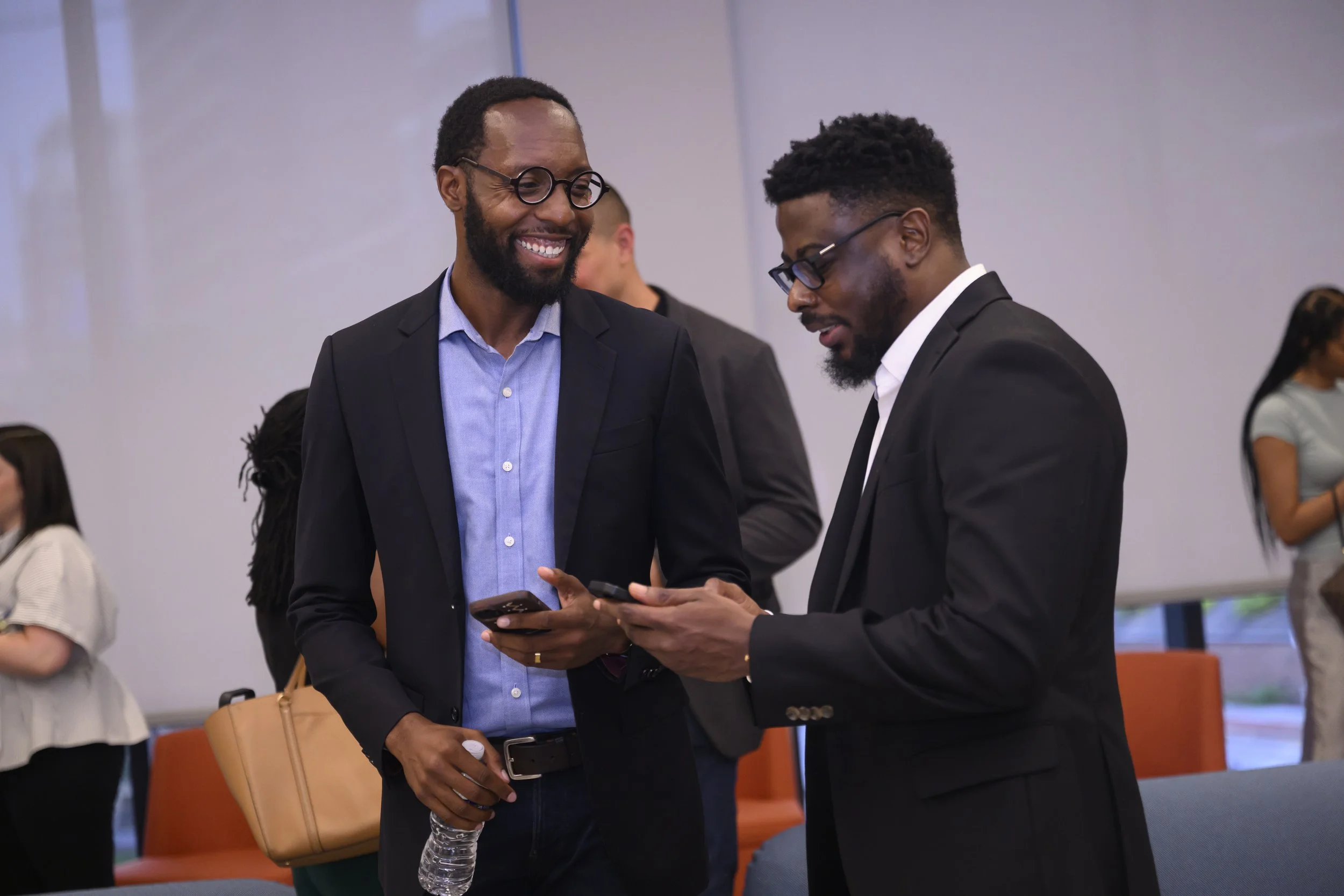Building Tech Power in Baltimore: Funding, Scaling, and Staying Rooted in Community
Last week, HBCUvc hosted its latest Capital Access Communities Founder and Funder event in Baltimore—an evening dedicated to exploring how founders can scale their companies while staying grounded in community. Centered around the theme “Building Tech Power: Funding, Scaling, and Staying Rooted in Community,” the event brought together a dynamic group of leaders from across the region’s innovation economy for a powerful conversation on capital access, inclusive growth, and entrepreneurial integrity.
Held in the heart of Baltimore, the event kicked off with a vibrant networking hour as founders, investors, and ecosystem builders connected over shared goals for the region’s economic future. The energy in the room made it clear: Baltimore and the greater Maryland area are brimming with talent, potential, and momentum.
The panel featured a cross-section of local leaders shaping the region’s innovation economy:
Luke Cooper, Founder & Managing Partner at Latimer Ventures
Calvin A. Young, Chief of Staff to Baltimore Mayor Brandon M. Scott
Mary Morris, Director of the Baltimore Fund at the University of Maryland, Baltimore
Jay Nwachu, President and CEO of Innovation Works
Chelsea Roberts, Chief Operating Officer at HBCUvc (moderator)
Together, they explored how founders in the Baltimore/DC region can access capital through nontraditional means—leveraging venture capital strategically, but also tapping into regional funding opportunities, CDFIs, and government grants. The conversation was both candid and affirming, with panelists sharing practical advice, hard-won lessons, and a shared belief in the power of local innovation.












Key Themes & Takeaways:
1. Build Boldly—Even Outside the Bay or NYC
Panelists made it clear: you don’t have to be in San Francisco or New York to build a transformative tech company. In fact, there are significant advantages to building outside of those hubs. The cost of living is lower, the competition for talent is less intense, and communities like Baltimore offer a deeper connection to purpose. Founders here are often able to do more with less, and that ingenuity becomes a strategic advantage.
2. Capital Access Must Be Multi-Dimensional
While venture capital remains a valuable pathway for some startups, the panel emphasized that founders shouldn’t treat VC as the only option—or even the default. Regional grant programs, philanthropic capital, government-backed loans, and mission-driven funds are all viable (and sometimes better-aligned) avenues for founders building for impact. Maryland, in particular, offers a range of public-private partnerships and funding sources designed to support early-stage companies with community in mind.
3. Trust Is Currency in the Founder-Investor Relationship
In a refreshing shift from the typical “pitch and perform” dynamic, the panel underscored the importance of integrity in building relationships with investors. Simply put: founders who do what they say they will do earn long-term trust. That consistency builds credibility, and credibility opens doors to mentorship, follow-on capital, and networks. Baltimore’s ecosystem is still intimate enough that reputation matters—and trust travels fast.
4. Baltimore’s Ecosystem Is Poised for Inclusive Growth
Perhaps the most powerful thread throughout the night was a shared vision for what the Baltimore/DC region can become: a thriving, inclusive, innovation economy that reflects the full diversity of its people. From equitable access to capital, to investment in workforce development and community-rooted accelerators, the panelists spoke about their work not just in terms of business, but in terms of equity and generational wealth. This region has the talent. It has the infrastructure. And now, more than ever, it has a coordinated ecosystem committed to supporting underrepresented founders.
